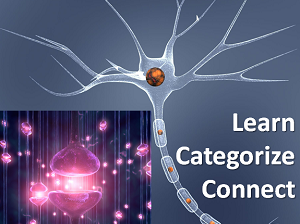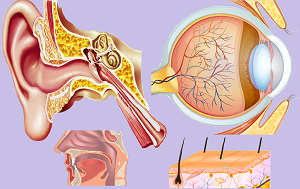Tag Archives: cognitive modeling
22 Mar Common Sense and Thresholds

Finding Thresholds Threshold conditions are boundaries between states, and they exist everywhere, affecting everything. From a computational perspective, thresholds are a valuable tool for limiting the problem space to within manageable limits. In other words, knowing where the edges are can help us computationally color inside the lines. How could we determine a threshold? Observing, […]
19 Mar At the Edge of Possibility

Does the universe of probability have boundaries? Are there physical laws that control all phenomena, or is there a mystical, capricious random power out there that is not subject to the laws of physics? Is anything impossible? Physical laws are responsible for thresholds. Let us presume, for a moment, that probability is subject to one overriding […]
19 Mar Fuzzy Logic Section Intro

Why do we find Mr. Spock, Commander Data or C3P0 so lovable? We have all known people like them: they are the ones who see the world in black and white. Spock had an excuse – he was a Vulcan who knew a lot. Computers, on the other hand, can be downright exasperating when they get […]
15 Mar The Random Hamlet

For building an automated language understanding and translation system, I believe that adding random factors to the model for “fuzzy” reasoning is needed and important. The questions are: How do we use random factors to improve the outcomes of the process? Where do we insert random factors into the model? How do we implement random […]
14 Mar That’s so Random!

Random Probability Theory Some things are difficult to predict, and some are nearly impossible to predict. The further a thing gets from predictable, the more nearly it approaches randomness. It may seem silly to try to define chaos or randomness or anything that spends its entire existence trying to defy definition, but some of us […]
13 Mar Probability and Expectations

The sun is pretty likely to rise tomorrow – you can have confidence in that, but it is sometimes said that “there is no guarantee.” Scheduling meetings tomorrow based on the sunrise assumption is a safe bet, but there may be any number of other things that interfere with the meeting. Life is filled with […]
12 Mar Building a Concept Hierarchy

Existential knowledge, our knowledge of things that exist, is hierarchical. In other words, we categorize things into classes. Objects in these classes form the content of our thoughts. We have heard about the phylogenetic tree, the “tree of life” or the system of biological classification. This is a beautiful example of a regular taxonomy (irregular might have […]
11 Mar Joe’s Theory of Everything

While my teachers explained that language is about nouns and verbs, I think language is about symbolically representing everything and communicating about anything to anyone. There are many ways to look at the milieu in which we live from the tiniest sub-atomic particle on up. One way is to look at the larger context of […]






